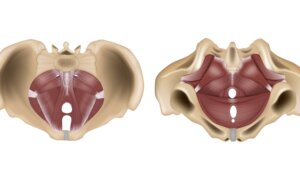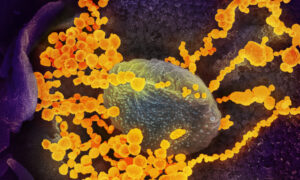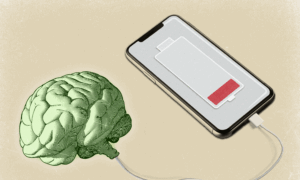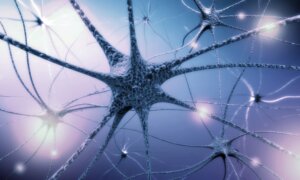With an aging population and increasing rates of neurodegenerative disorders such as Alzheimer’s disease, ginkgo biloba may offer a natural way to keep our brains healthy, regardless of our age. Who couldn’t benefit from improving their memory—or their focus and concentration?
How many times have you walked into a room only to wonder why you went in there? (Guilty!) Centuries of use in traditional medicines and modern studies show that ginkgo may help.
In the West, ginkgo biloba, or Salisburia adiantifolia, is known for its ability to increase blood circulation in the brain and improve memory and overall cognitive function. It has also been shown to help treat anxiety, depression, attention-deficit hyperactivity disorder (ADHD), migraines, and PMS symptoms, support heart health, and possibly have anti-cancer properties, according to in vitro and in vivo studies.
Ginkgo biloba are ancient, majestic trees with delicate, fan-shaped leaves with scalloped edges that can grow up to 100 feet tall. They are resistant to pests such as fungi and insects, as well as environmental toxins such as air pollution—making them a superb addition to crowded, urban areas such as parks and along city streets.
Ginkgo is an extremely old species that originated about 270 million years ago. It is one of the world’s longest living trees and is often referred to as a “living fossil”—with a lifespan of between 2,500 and 3,000 years. Ginkgo trees are so resilient that some trees in Hiroshima not only survived the dropping of the atomic bomb but quickly recovered and are still alive today.
This resilience seems to be passed on to us when we consume ginkgo, and its healing properties are well-known to many cultures. Ginkgo has been used as a food and medicine throughout Asia—especially in China, Japan, and Korea, where it is a symbol of health and longevity.
Active Ingredients and Actions
Ginkgo is a powerful anti-inflammatory and antioxidant and is rich in bioactive compounds, including flavonoids and terpenoids. The
flavonoids in ginkgo exert a protective effect on nerves, the heart, blood vessels, and the retina in the eyes. Terpenoids in ginkgo increase blood circulation by dilating blood vessels and reducing the accumulation of platelets.
Ginkgo has a neuroprotective effect against damage to the mitochondria and reduces oxidative stress by scavenging free radicals—whose accumulation is a characteristic in the development and progression of Alzheimer’s and other neurodegenerative diseases.
Research suggests that prolonged oxidative stress contributes to the development of a variety of chronic diseases such as heart disease, diabetes, and cancer.
A 2019 review published in Neurotherapeutics evaluated ginkgo’s neuroprotective and antioxidant effects. It states that in vitro studies have shown that ginkgo biloba extracts protected neurons from a variety of elements that would typically cause them to die—including hydrogen peroxide and cyanide. The study illustrates ginkgo’s properties as follows:
- Protects against ischemic neuronal death
- Possesses antioxidant and free-radical scavenging activities
- Preserves brain receptors susceptible to age-related loss
- Counteracts cognitive impairment
- Enhances neuronal plasticity
- Improves memory
Ginkgo biloba exhibits a wide range of actions, including “anticancer, antidementia, antidiabetic, antiobesity, antilipidemic, antimicrobial, antioxidant, antilipid peroxidation, antiplatelet, anti-inflammatory, hepatoprotective [protects the liver], antidepressant, antiaging, immunomodulatory, antihypertensive, and neuroprotective effects and is frequently used to treat neurological, cardiovascular, and respiratory diseases,” according to
a review published in Evidence-Based Complementary and Alternative Medicine in 2022.
Historically, the most common parts of the ginkgo biloba tree used medicinally were the leaves and nuts or seeds. Today, an extract made from ginkgo leaves is most often studied for its beneficial health effects.
Benefits the Brain
Ginkgo is well-studied for its benefits for a variety of systems and a number of conditions—particularly those involving the brain. Ginkgo is also one of the most popular supplements in the United States, and many health care practitioners recommend it to their patients.
Dallin LeGrand Peterson (who goes by Dr. LeGrand) is a licensed naturopathic physician in the state of Washington who runs a virtual practice that specializes in helping adults with ADHD [attention-deficit hyperactivity disorder]. He has a YouTube channel on which he talks about ADHD and how to improve focus, motivation, memory, and performance. Ginkgo biloba is something he used a lot in college because he has both ADHD and dyslexia, he told The Epoch Times.
“Ginkgo helped me drastically in college—helping me with more focus and memory recall while I was in class—so I’ve used it a lot for myself. I also prescribe ginkgo a lot to my patients because I specialize in helping adults with ADHD,” he said.
“One of the more established benefits of ginkgo biloba is that it does increase blood flow and circulation to the brain, which is very important because the brain needs nutrients and oxygen—so ginkgo supplies that oxygen and nutrients in order for the brain to function properly. Studies have shown that ginkgo biloba can definitely increase blood flow to the brain by dilating the blood vessels and reducing the thickness of the blood, allowing for better circulation.”
Alzheimer’s Disease
In a
clinical trial published in the European Journal of Neurology, researchers found that a ginkgo extract (special extract EGb 761) worked as well as the drug donepezil in patients with mild-to-moderate Alzheimer’s dementia. The trial was a randomized, placebo-controlled double-blind study in which researchers investigated the effectiveness of the ginkgo extract in “slowing down the [Alzheimer’s] disease’s degenerative progression and the patients’ cognitive impairment compared with donepezil and placebo.”
Donepezil is an acetylcholinesterase inhibitor used to treat Alzheimer’s and other forms of dementia, specifically for its behavioral and cognitive effects.
The researchers concluded by saying: “Our study suggests that there is no evidence of relevant differences in the efficacy of EGb 761 [the ginkgo extract] and donepezil in the treatment of mild to moderate Alzheimer’s dementia, so the use of both substances can be justified. In addition, this study contributes to establishing the efficacy and tolerability of the Ginkgo biloba special extract E.S. in the dementia of the Alzheimer type with special respect to moderately severe stages.”
A randomized controlled trial over 24 weeks investigated the effectiveness of a ginkgo biloba extract on 404 outpatients, all fifty years of age and older. The participants were diagnosed with either Alzheimer’s, mild-to-moderate dementia, or vascular dementia with neuropsychiatric features and were given 240 milligrams a day of a ginkgo biloba extract. Researchers found that the ginkgo extract “improved cognitive functioning, neuropsychiatric symptoms, and functional abilities in both types of dementia.”
Headaches
According to Mr. LeGrand, another, less known benefit of ginkgo biloba is preventing and reducing the severity of headaches.
“Because ginkgo increases blood flow, it actually can be used as a preventative for headaches,“ he said. ”I’ve actually found it pretty helpful, especially for myself and some of my patients, when they’ve used a lot of other things to help with headaches and they haven’t gone away. They find it helps reduce their headaches because of that increase of blood flow.”
Cognitive Function
Despite ginkgo’s ability to improve ADHD and headaches, Mr. LeGrand says its most notable effects are on memory and cognition.
“Probably the biggest positive effects I’ve seen with myself and also with my clients is more for memory and cognitive function. That’s why I use it with my patients and clients that have ADHD—because one of the symptoms they will usually suffer with is memory issues or just cognitive function output. Ginkgo is a great addition and something that I'll typically use,” he said.
Studies also show that ginkgo is effective in improving cognitive function.
A meta-analysis published in the Journal of Alzheimer’s Disease found that a standardized ginkgo biloba extract (EGb 761) was beneficial for “stabilizing or slowing decline in cognition” for patients with cognitive impairment and dementia. It states that the safety and tolerability of the extract “appeared to be excellent at different doses” and that clinical benefits were mainly achieved using a dosage of 240 milligrams per day. One of the meta-analyses investigated demonstrated “clinical benefits in cognition, behavior, functional status, and global clinical change of EGb 761 [the ginkgo extract] at a dose of 240 mg/day in the treatment of patients with dementia, AD [Alzheimer’s disease], and MCI [mild cognitive impairment] with NPS [neuropsychiatric symptoms].”
Ginkgo Biloba in Chinese Medicine
The leaves and seeds of Ginkgo biloba have been used in Chinese medicine for millennia. The leaves are called bai gou, and the seeds are called bai gou ye. Traditionally used as a lung tonic for coughing, shortness of breath, and conditions with phlegm, ginkgo also moves blood and breaks up stagnation—a common cause of painful conditions.
A 2022 study investigating ginkgo extract to treat dizziness caused by cerebral atherosclerosis states that ginkgo extract is a “Traditional Chinese Medicine (TCM) extract with the effect of promoting blood circulation and removing blood stasis. It is widely used in cardiovascular and cerebrovascular diseases.”
The authors concluded that the extract was highly effective for dizziness caused by cerebral arteriosclerosis and significantly improved other accompanying symptoms such as headache and forgetfulness. Overall, the extract improved the patients’ recovery and enhanced their quality of life. The authors also noted that the ginkgo extract was safe.
According to the “Chinese Medicine Materia Medica,” ginkgo is an astringent, has both sweet and bitter properties, and affects the lungs and kidneys. Its astringent qualities make it effective for treating coughs—especially with profuse phlegm—urinary incontinence, and vaginal discharge.
Chinese medicine approaches the use of herbs slightly differently than we are used to in the West. Instead of supplements that are designed to be taken for extended periods, Chinese herbs are prescribed by practitioners for specific conditions and are generally taken for short periods—only long enough to rebalance the body so it can take over on its own. There are exceptions—such as when there is a severe imbalance that has been culminating over many years as often happens in the elderly, who tend to have more complex conditions. In these cases, extended use of herbs may be warranted but are overseen by a practitioner so that adjustments can be made when and if they are needed. The goal is always to bring the body back to a state of equilibrium so it can function on its own without outside help.
Ginkgo seeds and, to a lesser extent, ginkgo leaves contain a naturally occurring toxin called ginkgotoxin. In Chinese medicine, long-term use is not recommended unless under the supervision of a qualified practitioner.
Ginkgo biloba trees have long been important symbols of longevity and vitality in Chinese culture, and the trees grow in many Taoist temple gardens, often predating their construction. Ginkgo nuts or seeds are a common ingredient in Chinese cuisine and are often used in congees (a kind of rice porridge), soups, and desserts.
A Word of Caution
Research has found that ginkgo is generally very safe and well tolerated, and levels of ginkgo toxin in supplements are typically low as they are designed for longer-term use. However, ensure that you find a quality product tested for safety. Anyone on prescription medications should consult with a health care provider before taking ginkgo.
Because of its blood thinning effects, ginkgo should not be taken by those on blood thinning medications and should be discontinued for about two weeks prior to any surgical procedures because of the increased risk of bleeding.
Final Thoughts
Ginkgo biloba is extremely popular, and one of the best-selling supplements in the United States and Europe. It has been studied extensively and has many reported benefits, especially for conditions involving the brain. If you are looking for a natural way to improve your brain health, ginkgo biloba is an option worth exploring.














